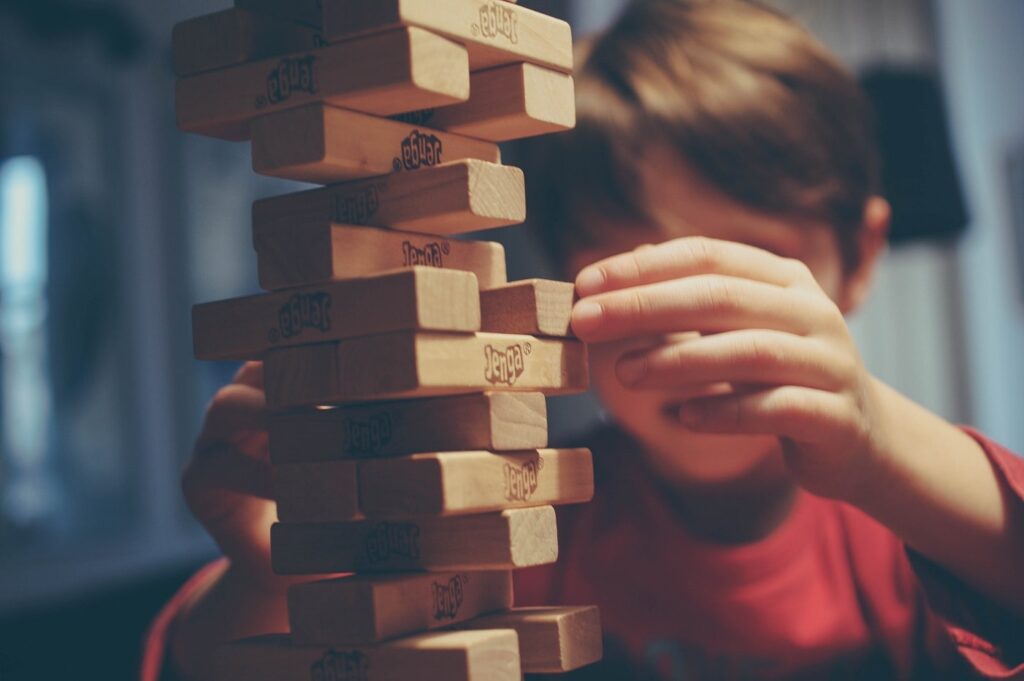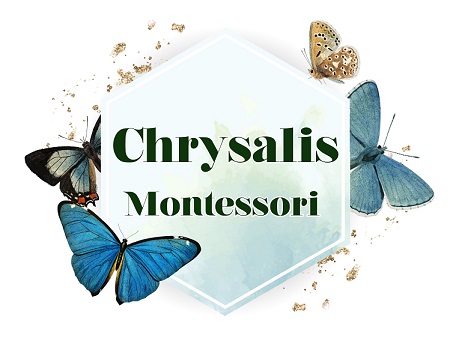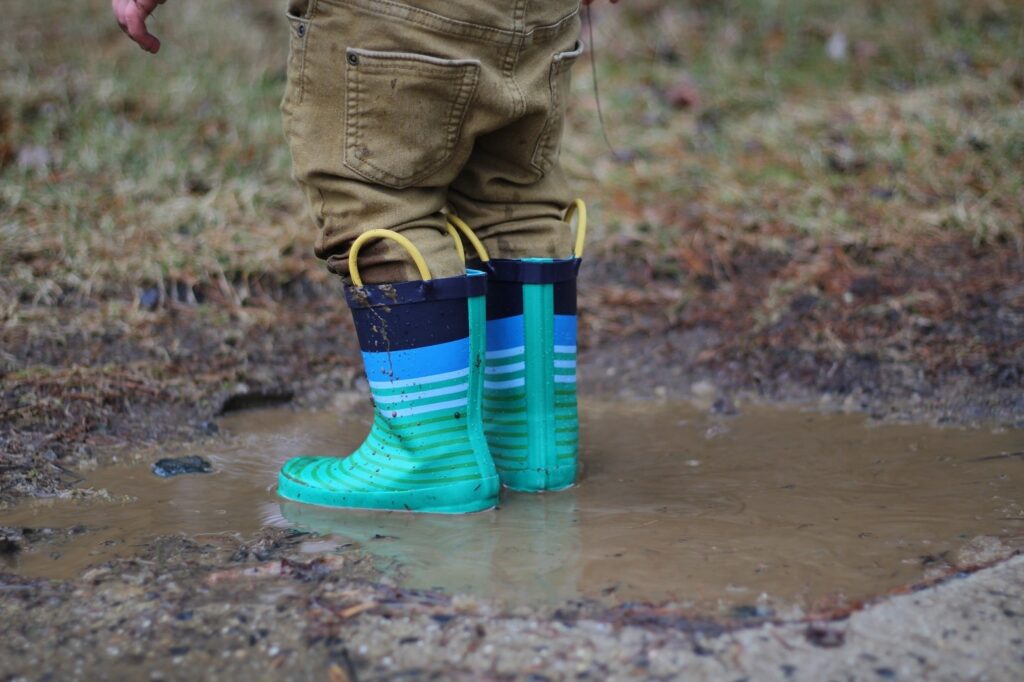Play: an Attitude of Non-Grasping

For most people, play is arguably what distinguishes the child from the adult. There seems to be a division between work and play: the first standing for purposeful, serious activity and the latter, as leisure, fun, pastime. I think our level of well-being, even as adults, depends on pockets of play. Some would argue that play and work can merged even later in life.
I am inclined to agree with Allan Watts who, in many of his speeches, encourages a playful disposition when it comes to work (T&H – Inspiration & Motivation, 2015). As an educator, it has been quite a journey to understand the complexities behind this topic and I am only scratching the surface. Play has a way to be a myriad of things yet no definition seems to grasp it. Either praised as being the work of the child, or looked down upon as something that doesn’t “teach” the child anything. Educators are able to see the power of concentration when it comes to mastery play, to see play as the filament that connects children in powerful friendships, the joy and magic or the seriousness and even sadness that it brings.
Of course, the EYFS (BAECE, 2012)* mentions ‘playing and exploring’ in the characteristics of effective learning, as the government curriculum is “capitalising” on this very unique aspect of childhood by transforming it into a vehicle for delivering knowledge. We all have a different approach and a different way of giving play the airtime and status we think it deserves.
I personally think that play, genuine play, is a window to the Self. Play that engages the whole child, has the capacity to reveal to us real insight about the soul of the child. Without play, these would remain locked away in their hearts and minds and perhaps even repressed. I will try to illustrate this in the following vignette.
The Story of Doctor Iks
The children picked up playing doctors and they had a marvellous time, shifting between being the receptionist and the pharmacist and the sick person and the doctor. We counted the pills, we established the right time for the patient to take her pills, we used a stethoscope and we learned a lot. A pretty satisfying project that could be evidenced and linked to the many boxes in the Development Matters** document.
But the things I remember after a project like this are certainly not the boxes ticked.
This is what stays with me: James came to me and said : “Roxana I am Doctor Iks
R: “Hello, Doctor Iks!”
He says : “I am a doctor for the children who don’t listen?”
I am intrigued and say : “So, Doctor Iks, do you have a special method that makes children listen?”
James is looking at me and he seems to gather his thoughts. He remains quiet for a little bit and I look at him with interest. I am almost scared that my curiosity will scare his thoughts away.
Finally, he says: “No, but, children do love Dr Iks and they listen!”
My heart mellows and I smile.
“That is beautiful, Dr Iks!..(I hesitate as now I need to gather my feelings)… So, do you think that children listen when they love the grown ups?
James : “Yes, They do !
I was puzzled by this episode. Ever since this happened I was thinking about what “Dr Iks” represents for James . I wonder if he was annoyed with a grown up that told him to listen … or perhaps Dr. Iks was a character born out of the need to create a contrasting experience… or perhaps he felt compelled to listen for the guidance of certain grown-ups and he, Dr Iks, helped him incarnate the quality that this adult may possess.
I think about his expression as he is telling me this story and the aplomb of his going on his bike to help “the children that don’t listen”. His voice is loud and says: “Guys, you be the children!”
I remember the words of Rita Pierson, a passionate educator with over 40 years of working with children: “[Children] don’t learn from people they don’t like!” (TED, 2013). James expresses this truth at the age of 4.
I realise that I do not have the eagerness to solve the puzzle and that he has gifted me with the wisdom of uncertainty. There is something mysterious that we now both make space for in order for it to gestate. In this space lies a kernel of beauty and truthfulness.
This episode makes me reflect on ethics of encounter where in order to be “able to hear the ungraspable call of the child, and have the capacity to relate to absolute alterity, one needs to interrupt totalizing practices which give the teacher possibilities to possess and comprehend the child. We have to open up for the unexpected and affirm what is to come” (Dahlberg and Moss, 2005: 86).
And perhaps there is new meaning I am adding to Montessori’s phrase “the secret of childhood” (Montessori, 1988, 1989), a secret that adults would often try to extract from the children but one that we can only see glimmers of when children are allowed the freedom they deserve.
I would add to this freedom, a readiness for being surprised and a joyful disposition to be in the company of children and an obvious (however silent) acknowledgement that play is a worthy, if not one of the highest preoccupations children have and that we value it and welcome it in all its forms.
~ Roxana Haloiu, August 2020

Notes:
- The name of the child has been replaced in order to ensure confidentiality.
- The Early Years Foundation Stage Statutory Framework (EYFS) sets the standards that all early years providers in England must meet to ensure that children aged 0 to 5 learn and develop well and are kept healthy and safe.
- Development Matters is the non-statutory guidance material which supports practitioners in implementing the statutory requirements of the EYFS.
List of References
British Association of Early Childhood Education (BAECE) (2012) Development Matters in Early Years Foundation Stage (EYFS) London: Early Education.
Dahlberg, G., Moss, P. (2005) Ethics and Politics in Early Childhood Education London: Routledge Famer
Montessori, M. (1988) The Absorbent Mind Oxford: Clio Press
Montessori, M. (1989) The Child, Society and the World Oxford: Clio Press
T&H – Inspiration & Motivation (2015) Work as Play: Allan Watts Available at: https://www.youtube.com/watch?v=8130_-3d3PA (date accessed: 21/08/2020)
TED (2013) Rita Pierson: Every Kid Needs a Champion Available at : https://www.youtube.com/watch?v=SFnMTHhKdkw (date accessed: 21/08/2020


